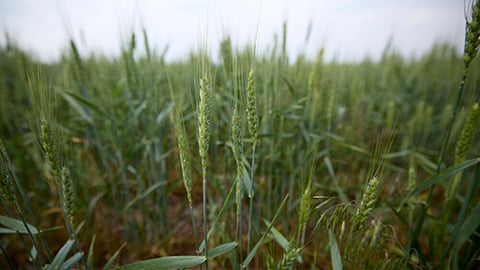How ALDI Intends to Become Most Sustainable Grocer in America
The ALDI SOUTH Group has revealed its goal to reach net-zero greenhouse-gas (GHG) emissions across its entire value chain by 2050, making it one of the first international grocery retailers with net-zero emissions targets validated by the Science Based Targets initiative (SBTi). SBTi is a corporate climate action organization that enables companies to play a part in combating the climate crisis and set GHG emissions reduction targets in line with what is needed to mitigate global warming. As one of America's fastest-growing retailers, ALDI U.S. will play a vital role in advancing progress on these goals.
The SBTi has validated that the following science-based emissions reduction targets submitted by ALDI SOUTH Group conform with the SBTi Corporate Net-Zero Standard and the SBTi Forest, Land and Agriculture (FLAG) Guidance:
- Reduce absolute scope 1 and 2 emissions 90% by 2035, from a 2021 base year.
- Reduce absolute scope 3 emissions 90% by 2050, from a 2022 base year.
- Reduce absolute scope 1 FLAG emissions 72% by 2050, from a 2021 base year
- Reduce absolute scope 3 FLAG emissions 72% by 2050, from a 2022 base year.
ALDI is one of the first retailers to set specific targets to reduce its FLAG emissions.
To advance immediate progress and action, ALDI SOUTH Group is committing to reduce scope 1 and 2 emissions 52% by 2030, from a 2021 base year, and scope 3 emissions 25% by 2030, from a 2022 base year. ALDI SOUTH Group is also committing to reduce absolute scope 1 FLAG emissions 30.3% by 2030, from a 2021 base year, and scope 3 FLAG emissions 30.3% by 2030, from a 2022 base year.
The company also pledged no deforestation across its primary deforestation-linked commodities, including palm oil, cocoa, coffee, beef and wood fiber-based products, by the end of 2025. These short-term goals have been validated by SBTi.
"There is a reason why ALDI is one of the only grocery retailers with SBTi-validated net-zero targets. We do things differently, and sustainability is no exception," said Jason Hart, CEO of ALDI U.S. "For instance, because our stores are stocked with 90% ALDI-exclusive brands, we can work more directly with our suppliers on emissions reductions. These industry-leading science-based targets are another way we are underscoring our commitment to operating sustainably and responsibly so we can keep offering quality, affordable groceries."
ALDI will focus on new partnerships and its existing initiatives that target the largest sources of emissions, including:
- Purchased Products: With the majority of its emissions stemming from its supply chain, ALDI recognizes the imperative to partner closely with suppliers. ALDI will make further investments to decarbonize its supply chain by forming partnerships with NGOs, joining multistakeholder initiatives and funding on-farm pilot programs, with a heightened focus on its dairy and beef supply chains. As just one example, ALDI is a member of the Innovation Center for U.S. Dairy's Dairy Sustainability Alliance and will continue to explore the interconnection of emissions reductions, nature and biodiversity, and animal welfare.
- Upstream Transportation and Distribution: ALDI is partnering with third-party logistics providers to identify opportunities to use alternative fuel sources and electric trucks to reduce transport emissions.
- Refrigeration: ALDI is advancing progress on its goal to transition all stores to natural refrigerants by 2035. Today, ALDI uses natural refrigerants in more than 700 stores, saving 60% of potential carbon emissions each year.
- Electricity: ALDI is focused on reducing energy consumption, investing in energy efficiency in its stores, regional distribution centers and offices, and purchasing renewable energy. Today, 100% of its electricity comes from renewable sources.
These goals further the ALDI ambition to become the most sustainable grocer in the country.
ALDI U.S. serves millions of customers across the country each month, with more than 2,300 stores in 38 states. The company is No. 28 on The PG 100, Progressive Grocer’s 2024 list of the top food and consumables retailers in North America. PG also named ALDI its Retailer of the Year for 2023 and among the 10 Most Sustainable Grocers in 2024.






